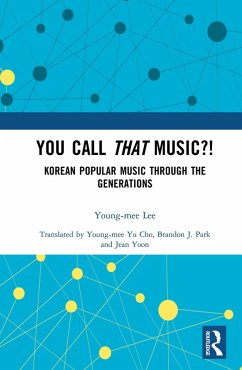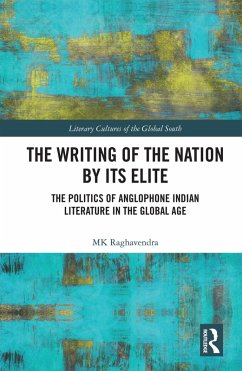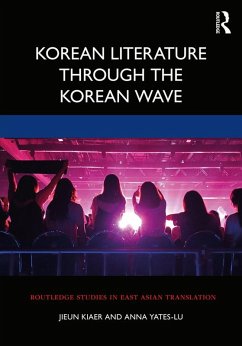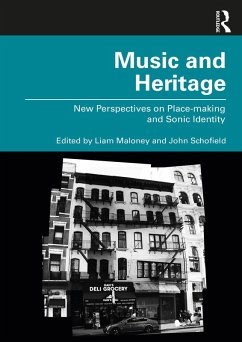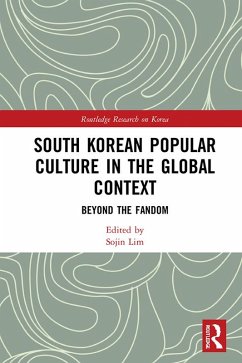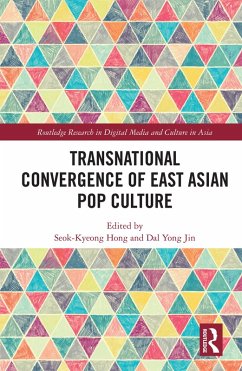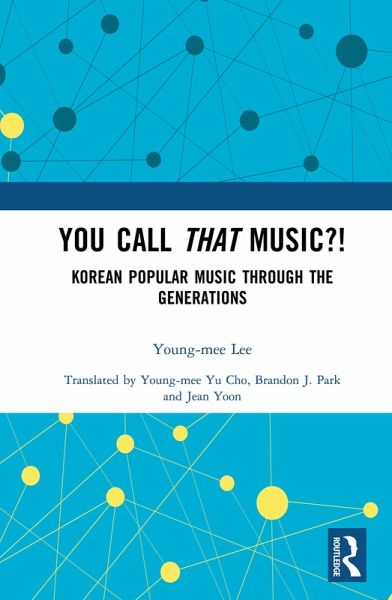
You Call That Music?! (eBook, ePUB)
Korean Popular Music Through the Generations
Übersetzer: Yu Cho, Young-Mee; Yoon, Jean; Park, Brandon J.
Versandkostenfrei!
Sofort per Download lieferbar
39,95 €
inkl. MwSt.
Weitere Ausgaben:

PAYBACK Punkte
20 °P sammeln!
You Call That Music?!: Korean Popular Music Through the Generations provides a critical overview of the history of Korean popular music from 1920 to the 2000s from the perspective of cultural history. First published in Korean in 2017 by one of the best-known critics, Lee Young-Mee, this book is a timely and much-needed source of information on Korean popular music of the past hundred years.Through this English translation, readers are able to make meaningful connections between specific forms of Korean popular music of various periods and the contemporaneous Korean social and political circum...
You Call That Music?!: Korean Popular Music Through the Generations provides a critical overview of the history of Korean popular music from 1920 to the 2000s from the perspective of cultural history. First published in Korean in 2017 by one of the best-known critics, Lee Young-Mee, this book is a timely and much-needed source of information on Korean popular music of the past hundred years.
Through this English translation, readers are able to make meaningful connections between specific forms of Korean popular music of various periods and the contemporaneous Korean social and political circumstances. Structured around the central theme of generational conflict, the book provides readers with an accessible way to engage with Korea's social history and a greater understanding of how specific musical works, genres and styles fit into that history. Its strong narrative force helps illuminate the connections between modern Korean social history and the particular trends of musical production and their reception through the decades.
You Call That Music?! is an invaluable resource for those researching and studying Korean popular music specifically as well as Korea's cultural and social history.
Through this English translation, readers are able to make meaningful connections between specific forms of Korean popular music of various periods and the contemporaneous Korean social and political circumstances. Structured around the central theme of generational conflict, the book provides readers with an accessible way to engage with Korea's social history and a greater understanding of how specific musical works, genres and styles fit into that history. Its strong narrative force helps illuminate the connections between modern Korean social history and the particular trends of musical production and their reception through the decades.
You Call That Music?! is an invaluable resource for those researching and studying Korean popular music specifically as well as Korea's cultural and social history.
Dieser Download kann aus rechtlichen Gründen nur mit Rechnungsadresse in A, B, BG, CY, CZ, D, DK, EW, E, FIN, F, GR, HR, H, IRL, I, LT, L, LR, M, NL, PL, P, R, S, SLO, SK ausgeliefert werden.




